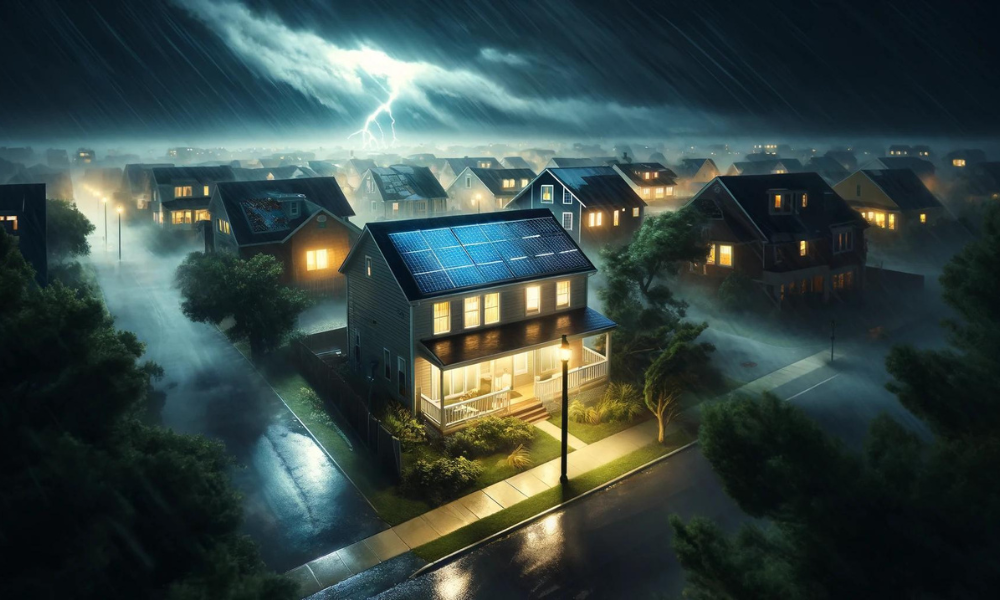
Living in Florida means enjoying beautiful beaches, vibrant cultures, and sunny weather. However, it also means preparing for the hurricane season, which runs from June through November. Being well-prepared can drastically reduce the dangers and discomforts associated with hurricanes. This guide will walk you through comprehensive steps to ensure you and your family are ready when a storm hits.
Understand Your Risks:
Begin by assessing your home’s vulnerability to storm surges, flooding, and wind damage. Determine whether you are located in a hurricane evacuation zone as set forth by your neighborhood county emergency management office.
Create a Disaster Plan:
- Communication Plan: Make sure every family member knows how to reach each other and where to meet if you get separated.
- Evacuation Plan: Identify several escape routes and local shelters if evacuation is advised. Practice driving these routes before a hurricane warning is issued.
Build an Emergency Kit:
Prepare a kit that includes:
- Non-perishable food and water for at least three days
- Batteries, a flashlight, and a portable radio
- First-aid supplies
- Critical medications
- Important documents in a waterproof container
- Cash, as ATMs may not be working
Secure Your Home:
- Install hurricane shutters or have plywood ready to board up windows.
- Trim trees and shrubs around your home to minimize damage from broken branches.
- Secure loose items like garden decorations or patio furniture that can become projectiles in high winds.
- Consider a generator for power outages, but ensure it operates outside and away from windows to prevent carbon monoxide poisoning.
Review Your Insurance: Make sure your home and possessions are adequately covered for hurricane damage and flooding, which might require purchasing separate flood insurance.
Stay Informed:
- Download a reliable weather app and subscribe to alert services for real-time updates during a hurricane.
- Understand hurricane forecast models and warnings. Know the difference between a hurricane “watch” and “warning.”
While hurricanes can be daunting, preparing in advance can significantly mitigate risks to your safety and property. Take action early, and adapt your plans as needed each season. Remember, preparedness is not just about protecting property—it’s about ensuring the well-being of your family and community.
Have Solar?
Safeguarding your home and assets becomes paramount. Among these assets, solar systems—whether for pool heating, domestic hot water, or power generation—require special attention. These systems represent a significant investment and play a crucial role in our daily lives. This guide provides step-by-step instructions on how to prepare and protect your solar installations from the ravages of a hurricane. From isolation techniques to post-storm assessments, we’ve got you covered.
Safeguarding your home and assets becomes paramount. Among these assets, solar systems—whether for pool heating, domestic hot water, or power generation—require special attention. These systems represent a significant investment and play a crucial role in our daily lives. This guide provides step-by-step instructions on how to prepare and protect your solar installations from the ravages of a hurricane. From isolation techniques to post-storm assessments, we’ve got you covered.
There might be a fee for evaluating storm damage. Additional charges may apply for repairs or replacements. Warranty claims might be rejected by the product manufacturer if damage results from an act of God.
Make sure your battery is set to “Back up Mode” instead of “Self Consumption Mode.” This ensures it remains fully charged before a grid outage. If you’re uncertain about this setting, contact our office or consult the manufacturer’s website.
You can safely reactivate the system(s) once storm dangers have subsided and after conducting a visual or physical inspection for potential damage or leaks. If you suspect any damage, have a certified service technician inspect it before resuming operation.
Every Solar Water Heating (or Solar DHW) system has isolation valves that prevent water from traveling to and from the water heating tank and the panel on the roof. If you’re unsure about these valves, it’s advisable to turn off the water to your water heating tank. This prevents potential water loss until the storm has passed and a visual inspection can be conducted.
It’s best to ensure your solar system is isolated so no water travels to the Solar Pool Heating panels on your roof. If you’re not 100% certain how to isolate your solar system, turn OFF the circuit breaker controlling your pool pump. This ensures no water movement until it’s safe to turn it back on.
How much will solar cost you?
Find out. It’s FREE!

